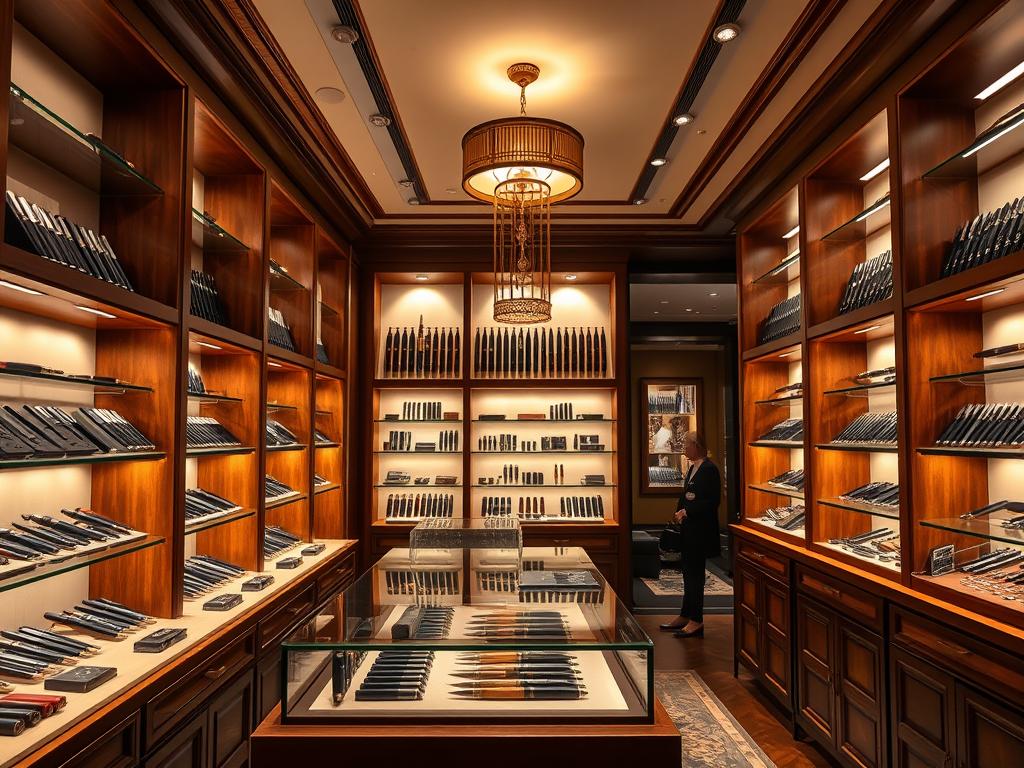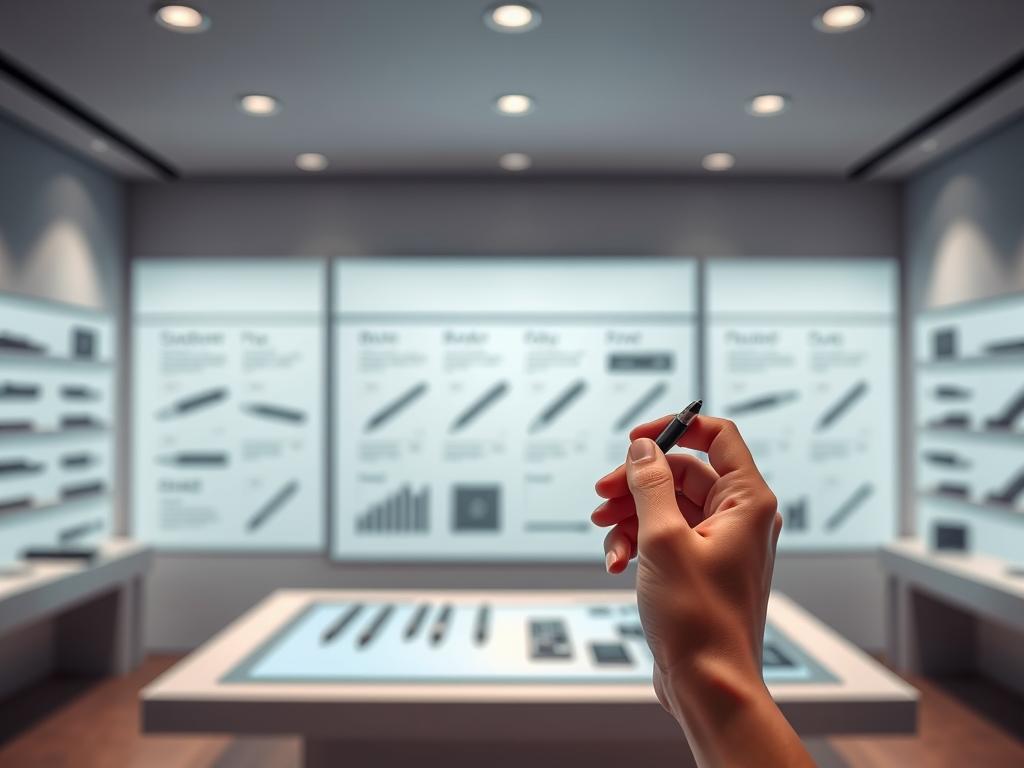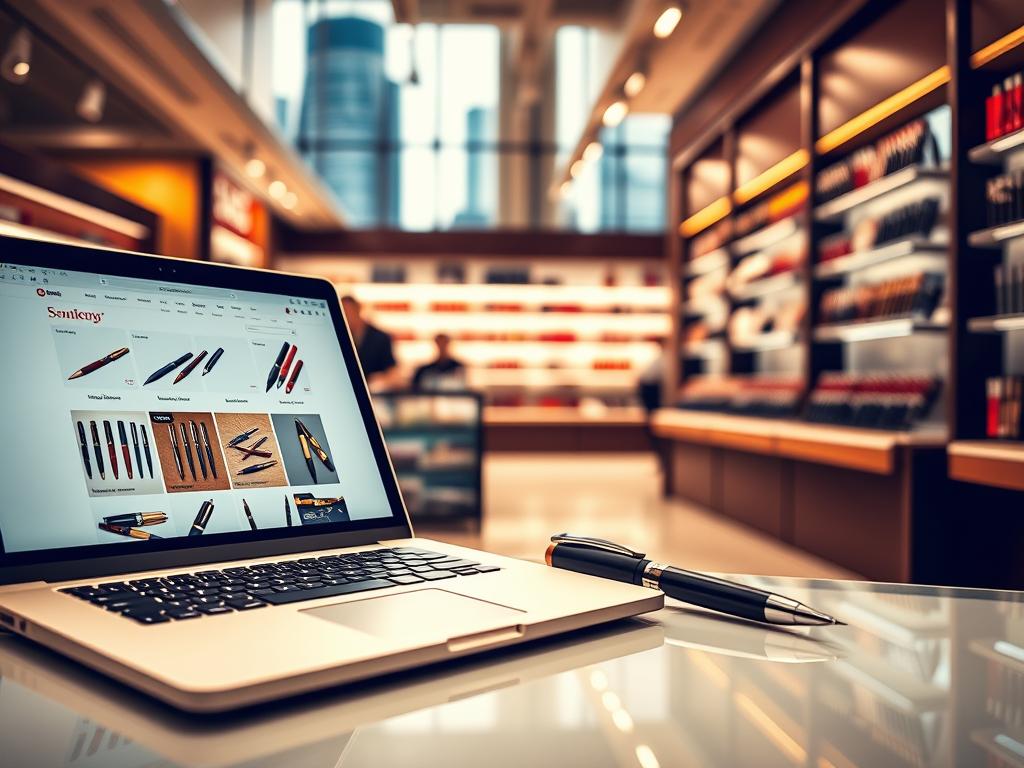For luxury pen enthusiasts, choosing between digital platforms and brick-and-mortar retailers sparks lively debates. Shoppers today balance speed and convenience with the irreplaceable joy of holding a Montblanc or Parker fountain pen before buying. Decades ago, local stationery shops offered personalized service, but many have vanished, leaving niche collectors to adapt.
Boutiques like those carrying Graf von Faber Castell or Aurora still thrive by letting customers test nibs and finishes firsthand. Meanwhile, virtual marketplaces showcase limited-edition releases from brands like Nakaya and Tibaldi. Pen shows bridge these worlds, blending instant access to global sellers with tactile experiences.
This article examines how modern buyers navigate both realms. Why do some prioritize same-day delivery for a Lamy Safari, while others spend hours comparing Pelikan models in person? From Waterman’s vintage designs to Montegrappa’s art pieces, every choice reflects personal priorities. Whether browsing S.T. Dupont lighters online or admiring Caran d’Ache craftsmanship at a retailer, the decision hinges on what matters most: immediacy or immersion.
Key Takeaways
- Digital purchases prioritize speed, while physical stores offer hands-on testing.
- Brands like Namiki and Cross provide exclusive designs through both channels.
- Pen shows combine global accessibility with in-person interactions.
- Many local retailers have closed, shifting focus to specialized boutiques.
- Luxury buyers often blend both methods for optimal results.
Embracing the In-Person Pen Experience
There’s magic in watching sunlight dance across a Montblanc’s platinum trim or feeling the balance of a Parker Duofold before committing to a purchase. Physical retailers specializing in premium writing tools create spaces where enthusiasts explore textures, weights, and nib flexes that photos alone can’t convey.

Hands-On Testing and Personalized Recommendations
Knowledgeable staff at boutiques like Noble Quills often begin consultations by observing writing styles. They might suggest broader nibs for bold signatures or ergonomic grips for left-handed users. Testing different filling systems – piston converters versus cartridge-loaded – becomes effortless when handling products directly.
Consider this comparison of in-store advantages:
| Benefit | Description | Example Brands |
|---|---|---|
| Nib Customization | Test fine/medium/broad nibs side-by-side | Parker, Caran d’Ache |
| Material Inspection | Feel resin warmth or metal coolness | Montblanc, Graf von Faber-Castell |
| Ink Matching | Compare 20+ shades under natural light | Pelikan, Aurora |
Exploring Luxury Brands: Montblanc, Parker, and More
Boutiques showcase limited editions behind glass like museum pieces. A Waterman’s chrysanthemum engraving or Montegrappa’s silver filigree demands close inspection – details that lose impact on screens. As noted in The Fountain Pen Journal, this tactile approach helps buyers appreciate craftsmanship that digital catalogs often flatten.
Understanding the online vs store pen shopping Debate
The way people acquire premium writing tools has transformed dramatically. While traditional boutiques remain vital, digital platforms now play an equally important role. Brands like Franklin-Christoph pioneered innovative virtual releases, such as their Stock Room drops, which became industry benchmarks during COVID-19 restrictions.

Digital Convenience and Exclusive Online Offers
Limited-edition launches and flash sales drive excitement in the collector community. Events like online pen shows allow enthusiasts to snag rare Montegrappa collaborations or Sailor nibs without travel. Time-sensitive discounts and global shipping options make these events a cost-effective alternative to physical gatherings.
Adaptive Strategies in a Changing Retail Landscape
Retailers blend digital and in-person methods to thrive. For example:
- Boutiques host livestreams demonstrating nib customization
- Brands offer virtual consultations matching ink colors to writing styles
- Hybrid events let attendees preview products digitally before attending in person
This dual approach preserves the tactile joy of testing pens while expanding access. As one industry expert noted, “The future lies in giving buyers multiple paths to fall in love with craftsmanship.” Whether purchasing a Caran d’Ache ballpoint or discovering emerging artisans, today’s options cater to both immediacy and deeper exploration.
Cost, Convenience, and Community: A Comprehensive Comparison
Price tags and social connections shape how enthusiasts acquire premium writing tools. Over the past few years, brands have balanced flashy promotions with tactile experiences to meet evolving consumer demands. This dynamic creates questions for collectors: Is a limited-edition Montegrappa worth the premium, or should they hunt for digital coupons instead?
Price Comparisons and Exclusive Deals
Digital platforms often undercut physical retailers through seasonal discounts. Caran d’Ache’s 2023 holiday sale offered 20% off via email codes, while boutique customers negotiated complimentary nib adjustments. However, one trend remains clear: rare models like Aurora’s Optima 365 sell faster online despite higher prices.
Community Engagement and the Role of Pen Shows
Events like the DC Pen Show unite enthusiasts to test Sailor’s specialty nibs or trade vintage Watermans. “Meeting creators face-to-face builds trust you can’t replicate through screens,” notes a Pelikan collector. These gatherings also preview releases – Montegrappa’s Dante Alighieri fountain pen debuted at such events before hitting websites.
Impact on Collectors: From Caran d’Ache to Montegrappa
Limited editions drive both markets. Caran d’Ache’s “Variations” set sold out online in hours, yet in-person buyers received custom engraving. Consumers now blend methods: researching nib specs digitally before inspecting finishes at stores. As one industry report states, “The best deals satisfy wallets and wonder.”
Conclusion
Navigating premium writing tools requires understanding how cost and craftsmanship intersect across platforms. Physical boutiques let enthusiasts test nib flexibility and material quality firsthand – advantages that Aurora and Pelikan fans value. Meanwhile, digital channels offer competitive price points for limited Montegrappa releases.
Each method brings unique strengths. In-person interactions reveal design details like Waterman’s engravings, while online deals simplify access to global market trends. Savvy collectors blend both perspectives, using digital research to inform boutique visits.
Recognizing these advantages helps buyers make informed choices. Whether admiring Caran d’Ache’s resin work up close or securing rare Nakaya models remotely, success lies in balancing immediacy with immersion. Ultimately, the best perspective combines modern efficiency with timeless tactile joy.
FAQ
What advantages do physical retailers offer for testing pens before buying?
Brick-and-mortar stores let customers handle products like Montblanc or Parker pens firsthand. They can assess weight, nib smoothness, and ergonomics, which helps avoid mismatched purchases. Knowledgeable staff often provide tailored advice based on writing preferences.
How do digital platforms compete with in-person luxury brand experiences?
Web-based retailers counterbalance tactile limitations with detailed videos, zoomable images, and virtual consultations. Limited-edition releases or flash sales—common with brands like Caran d’Ache—also attract enthusiasts who prioritize exclusivity over hands-on access.
Are pen shows still relevant in today’s market?
Absolutely. Events like the DC Pen Show foster community by connecting collectors with niche brands such as Montegrappa. Attendees test rare models, swap nibs, and learn restoration techniques—a social dynamic e-commerce can’t fully replicate.
Do price differences between channels affect consumer choices?
While some retailers undercut competitors on mainstream models, premium boutiques bundle services like engraving or nib customization. Savvy shoppers weigh these perks against base costs, especially for high-end purchases exceeding 0.
How has the pandemic reshaped buying habits for writing instruments?
Hybrid trends emerged: consumers research specs digitally but finalize decisions in person. Retailers now blend click-and-collect options with curated in-store events, ensuring flexibility without sacrificing tactile engagement.
Why might collectors prefer specialty stores over mass-market outlets?
Boutiques often stock limited-run designs, vintage reissues, or artisan collaborations. For example, stores like Fahrney’s carry exclusive Pilot Custom Heritage editions unavailable through general merchants, appealing to discerning buyers.


